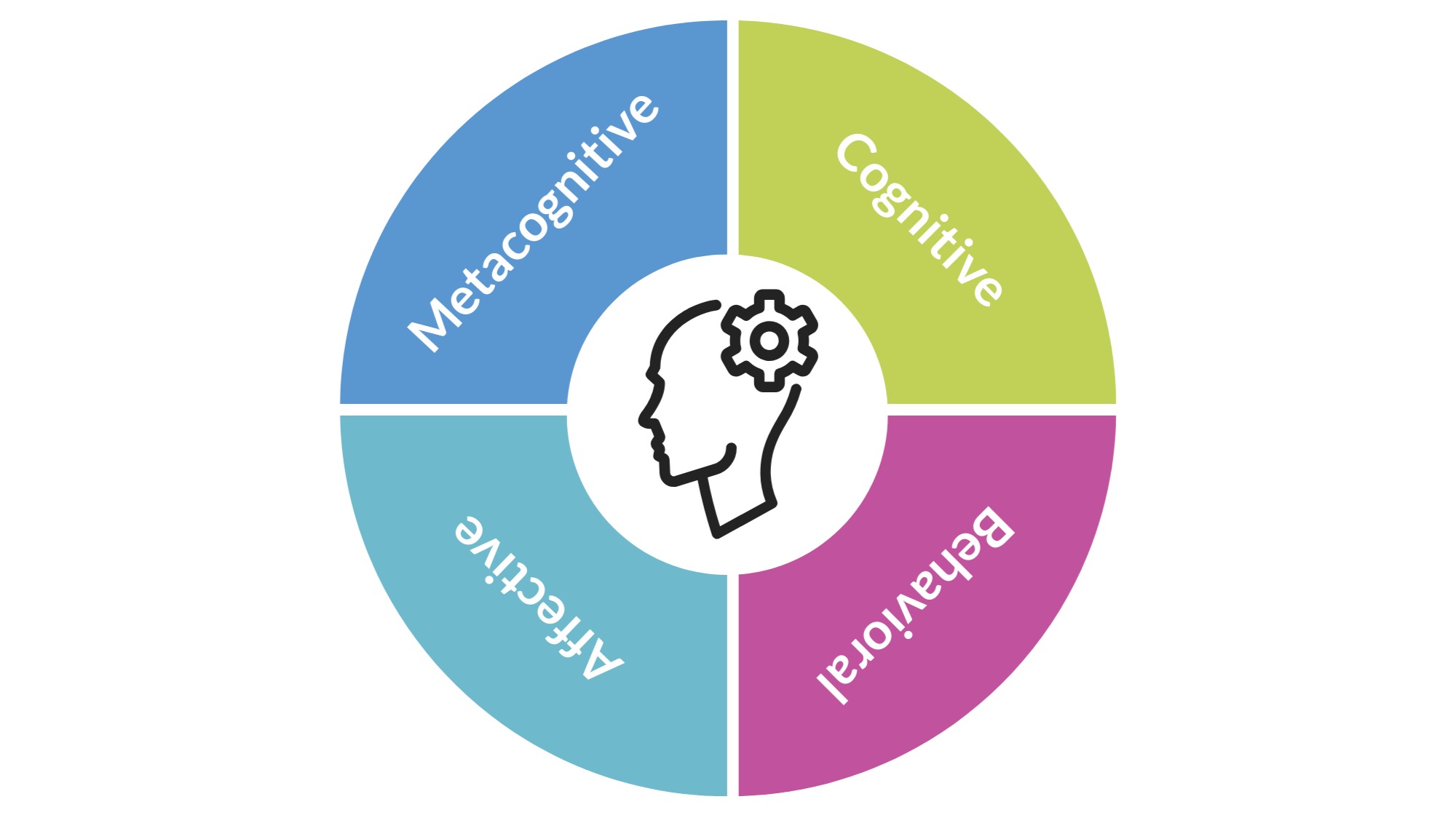When you go through the processes involved in researching a topic, you have a goal in mind. Often, you will be creating something to share with others. In college, it might just be for your professor, but you may also complete assignments that will be shared more widely. Outside of school, you might produce and share information through social networks that reach a global audience.Taking on the role of an information producer involves a set of responsibilities to consider.
The next time you investigate a new topic and create content to share what you have learned, ask yourself the following questions. Notice the abbreviations, which represent the affective (A), behavioral (B), cognitive (C), and metacognitive (M) learning domains As you research and create new information, you are involved in a learning process that involves each of these domains:

Affective: This domain is often forgotten, but it is a very powerful part of learning. It is related to how you feel about the experience. If you are excited about learning something, you will have a very different experience than if you really aren’t interested, or are nervous about the process.
Behavioral: This is what you are now able to do as a result of learning. What are you now able to do that you couldn’t before you started learning about this topic
Cognitive: This is often what people think of as learning and includes what you now know as a result of your learning. It involves analysis and synthesis of information, as well as more basic abilities such as being able to remember new information.
Metacognitive: This refers to being thoughtful about your learning—what you have learned, what you still need to know, which gaps are most important to fill—in order to be a more engaged, successful learner.
Remember, learning is an important step along the way to producing and sharing information.
Ask Yourself...
Each question or set of questions is labeled with its associated learning domain(s).
- Do you feel confident about the research you are doing and the content you want to create? (A, M) If you have concerns, how might you get help? (B,C)
- Have you thought about the best format to get your information across to others? (C)
- Do you plan to compile diverse outside resources to create something new? (B) How will you cite the original content creators? (B,C)
- Do you produce and share your own content such as selfies, digital images, or video? (B) Is this information developed informally for fun or have you also created and distributed your own content in more formal ways to tell a story, offer advice, support a research project, or teach peers and colleagues? (B,C)
- When sharing your own content online, do you consider who can access it? Are you reaching the people you hope to? (C)
- Are you familiar with platforms such as Creative Commons and Wikimedia for searching and sharing openly licensed content? Have you considered using a Creative Commons license to share your work? (B,C)
- Do you tend to refrain from producing content due to concerns about how it will be received by others? (A,B) Have you reflected on the potential benefits for others if you share content you have put time and effort into? (M) Do you need to adapt it in any way in order to do this? (B,C)
- Can you gather feedback from your audience during or after the production process? How might you use this feedback to revise and improve your work? (B,C)